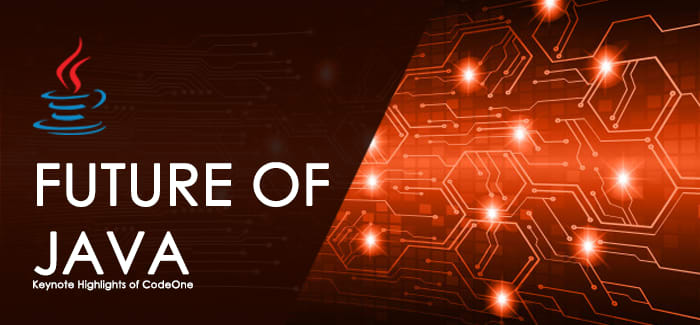The opening keynote for Oracle Code One 2018 gave viewers the opportunity to hear from well-reputed members of Oracle's Java Platform group and Industry. Oracle also announced recent additions to the language and platform and provided a look ahead at future developments.
About Oracle Code One
Oracle Code One is the industry-leading developer conference, featuring a collection of international and local experts and speakers to explore the latest developer technologies, languages and much more.

The vice president of development for the Java Platform, Georges Saab, kicked off the event by restating Oracle dedicated commitment for the Java platform. He addressed the performance of Java, reliability, security, and ecosystem make it ideal for modern application development. Matthew McCullough, VP of Field Services at GitHub, he emphasized the importance of OpenJDK, the open source reference implementations of the Java platform and discussed the project Skara. The main goal of this project is to investigate alternative source code management and code review options for the JDK source code. He also discussed the most "software of consequence" is developed through global collaboration, and also encouraged the audience to get involved with open source projects.
Later when Saab returned to the stage, he talked about preserving Java qualities. Java has been ongoing, free and the community is committed to completing the current platform and investing in the compatibility of developers and developers.
A core message from this event was that “Java is still free" and that Oracle JDK is quite similar to the OpenJDK builds. Mark Reinhold, chief architect of the Java Platform Group at Oracle, elaborated top five misconceptions about the new release model of Java.
Here the keynote highlights of the future projects of Oracle:
- Project Amber: Aimed to explore productivity-oriented Java language features such as raw string literals with expressions, pattern matching, and records
- Project Panama: This project is designed to improve and enrich the connections between Java programs and well-defined but foreign code and data.
- Project Valhalla: This project is introducing value types and generic specialization to enable higher-performance, cache friendly data structures.
- Project Loom: which seeks to introduce lightweight user-mode threads, called fibers to enable simpler yet a more efficient concurrent code.
Reinhold presented a series of live-coding demonstrations with the latest Java 12 build, example of which found on the concerned projects websites.
At the end of the event, the Java development team announced the 2018 Duke's Choice Awards winners including JPoint, a self-driving car, community winner BgJUG and Sharat Chander. Among the winning Java tools announced were ClassGraph, Twitter4J, Apache NetBeans and Jelastic vertical memory scaling along with open source initiatives like Project Helidon.
What are the recent updates about the Java Platform?
On On September 25 Java SE11 was released with significant upgrades and improvements which as discussed below:
Flight Recorder: A low-overhead data collection framework for troubleshooting Java applications and Hotspot JVM.
HTTP Client: A updated new HTTP client API first introduced in JDK 9 as an incubating feature which implements HTTP/2 and Web Sockets
Launch single-File Source Code Programs: Improvement to the Java Launcher to run a program supplied as a single file of Java source code, making it easier for developers who are in the early stages of learning Java.
ZGC: A low latency garbage collector that can easily handle xterabyte-sized heaps without pausing for more than 10 milliseconds.
These are the major highlights of the latest Java event. The reactions of the community to the Java keynote was generally positive. Some comments were trending like Paul Bakker stating Excellent keynote at #CodeOne and for good reason, Java ecosystem is looking better.






Top comments (3)
I strongly believe that future of Java development is switching to Kotlin, but hey, do not take offense :)
Well, all improvements to the JVM and the platform as a whole will ultimately also benefit Kotlin developers. The difference between Java and Kotlin is primarily syntactical, and none of the mentioned changes are exclusively Java syntax based. So we all profit from them, Java or Kotlin alike.
100% agree.